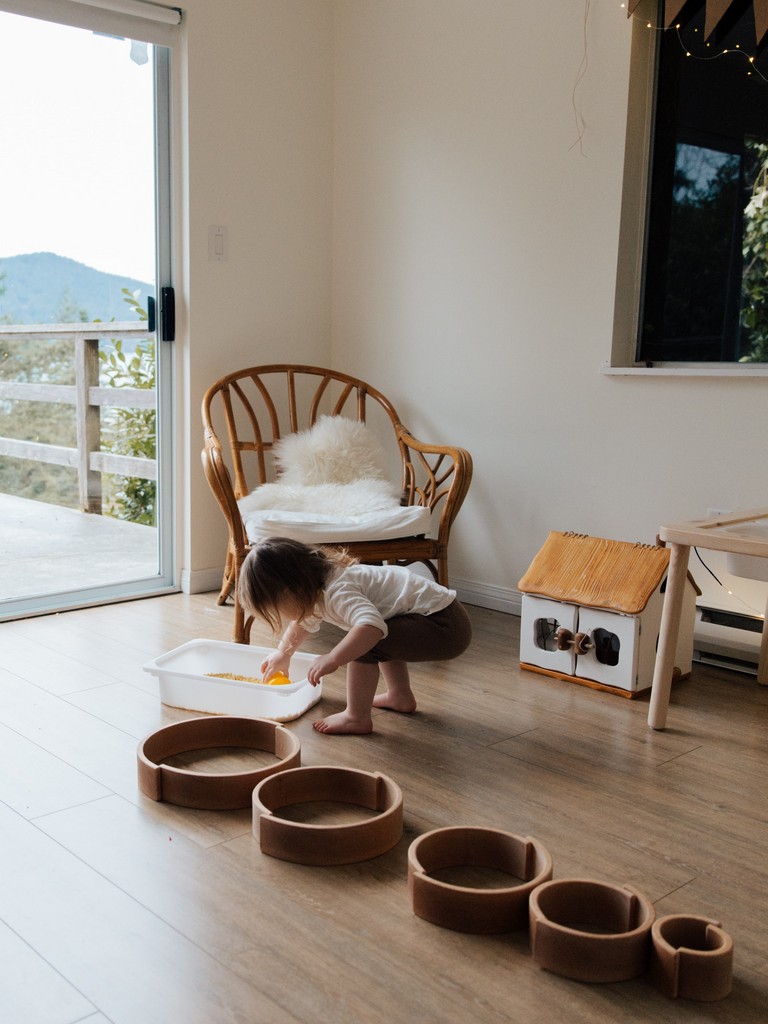How Montessori education can harm your child’s development? Are you considering Montessori education for your child? While this approach to education is becoming increasingly popular, it may not be the best choice for every child. Montessori education can have negative effects on some children’s development. Here’s what you need to know:
What is Montessori Education?
Montessori education is a child-centered approach that emphasizes independent learning and exploration. Students are encouraged to work at their own pace and focus on their interests. The curriculum is designed to promote academic, social, and emotional growth.
How Can Montessori Education Harm Your Child’s Development?
While Montessori education has many benefits, it can also have negative effects on some children’s development. For example, because students are encouraged to work independently, they may not learn important social skills. Additionally, because the curriculum is child-led, some children may not receive the academic guidance they need to succeed.
The benefits of this type of learning environment include:
- Increased independence and self-confidence
- Greater ability to focus on tasks for longer periods without becoming distracted by outside factors (like other kids)
What are the Alternatives to Montessori Education?
If you’re concerned about the potential negative effects of Montessori education, there are plenty of alternatives to consider. Traditional education, for example, offers a structured curriculum and more opportunities for socialization. Other alternative approaches, such as Waldorf education, may also be worth exploring.
There are several alternatives to Montessori education.
Traditional Education:
This is the most common form of schooling in America, which includes teaching students through lectures, textbooks, and tests. It’s also known as “conventional” or “academic” learning because it focuses on teaching students how to think critically and solve problems using their brains alone–without using their hands or bodies at all!
Waldorf Education:
This type of schooling was developed by Rudolf Steiner in Germany during the early 1900s; it emphasizes creativity over academics (which means that kids don’t learn how to read until they’re 6 years old!). Instead of focusing on memorization skills like math facts or spelling words out loud every day like traditional schools do today (which isn’t very fun!), Waldorf schools emphasize hands-on activities like art projects where children are encouraged to use their imaginations while working together as part of groups called “classes.” Classes usually consist of only one teacher plus 20-30 students who stay together throughout elementary school until graduation day when they receive diplomas showing what subjects they’ve mastered over time along with other accomplishments such as musical performances etc…
Challenges with Montessori Education
Montessori education is a popular choice for many parents, but it comes with its own set of challenges. One of the biggest issues with Montessori is that it lacks structure and limits. The philosophy behind this method is that children should be given the freedom to explore their surroundings and learn through their natural curiosity, which can lead to excessive freedom in some cases.
In addition to this lack of structure, there are also concerns about socialization with other children because most Montessori schools don’t have any organized playtime or recess periods where students can interact with each other outside of class time or during snack breaks. This can leave your child feeling isolated from peers who may be having more fun at traditional schools where they get more opportunities for interaction with their classmates outside class hours
Impact on Cognitive Development
- Delayed reading and writing skills
- Poor critical thinking skills
- Low math achievement
Impact on Emotional Development
The Montessori approach to education focuses on the child’s self-directed learning. In other words, it is up to the child and not the teacher or parent to decide what they want to learn about and how they want to learn it. This can be beneficial for some children who are highly motivated and have a strong desire for independence; however, this approach may also cause problems when it comes time for them to interact with others outside of their classroom environment.
One major issue is that many children raised in this type of environment are unable or unwilling (because they’ve never been taught) how to regulate their emotions properly during social situations. This can lead them to have difficulty making friends because they don’t know how to respond appropriately when someone gets angry at them or says something mean–which happens often enough among young kids! Additionally, since there isn’t any structure around bedtime routines like brushing teeth or reading stories before going off into dreamland each night; some children might develop anxiety issues over whether they’ll be able to fall asleep without these rituals being completed first.”
Impact on Physical Development
A Montessori education can harm your child’s physical development. According to the American Academy of Pediatrics, children who attend Montessori schools tend to be delayed in their motor skills and hand-eye coordination compared to their peers who attend traditional schools. In addition, children who are enrolled in a Montessori program may not get enough exercise because they’re often confined indoors for long periods. This can lead to poor posture and muscle weakness later in life
Impact on Social Development
Montessori education focuses on the child, not the group. This means that children are often isolated from one another and don’t develop social skills as they grow up. They may also be unable to cooperate with peers or work together on projects because of their inability to communicate effectively with others.
Montessori students also tend to lack problem-solving skills, which is an important part of growing up and learning how to deal with problems in life.
Finding the Right Balance
The first step in finding the right balance is to evaluate your child’s needs. If you’re considering a Montessori education for your child, it’s important to understand what kind of environment will best suit them. In addition to considering their temperament and interests, think about how much discipline they need.
If you’ve decided that Montessori might be right for your family and are looking into specific schools or programs, make sure that they have experienced staff who can help guide parents through the transition period when starting at a new school. Also, consider whether there will be enough support available after hours–if not during school hours–when things may get difficult at home or on weekends (or both).
FAQs:
Q: Is Montessori education suitable for all children?
A: No, Montessori education may not be the best choice for all children. It’s important to consider your child’s individual needs and learning styles before choosing an educational approach.
Q: Can Montessori education prepares children for academic success?
A: While Montessori education can be effective for some students, it may not provide the academic guidance that all children need to succeed.
Q: What are the benefits of Montessori education?
A: Montessori education can promote independent learning, creativity, and self-esteem. It may also help children develop important life skills, such as problem-solving and decision-making.
Q: What should I consider when choosing an educational approach for my child?
A: When choosing an educational approach for your child, it’s important to consider your child’s individual needs and learning style, as well as your values and goals for your child’s education.
Q: How can I determine if Montessori education is right for my child?
A: To determine if Montessori education is right for your child, you may want to visit a Montessori school and observe the approach in action. You can also talk to other parents and educators to get their perspectives on the approach.
Montessori education is a popular approach to education, but it may not be the best choice for every child. While it can promote independent learning and creativity, it may also have negative effects on some children’s development, such as a lack of socialization and academic guidance. When choosing an educational approach for your child, be sure to consider your child’s individual needs and learning style, as well as your values and goals for your child’s education.

Meet Helen, a passionate educator and Montessori expert with over 15 years of experience in the field. She holds a Bachelor’s degree in Education and a Master’s degree in Montessori Education. Helen’s love for the Montessori method began when she was introduced to it during her own childhood education. Since then, she has dedicated her career to promoting the Montessori approach as a way to help children develop their full potential. Through her work as a teacher, consultant, and writer, Helen has helped countless parents and educators understand and implement the Montessori philosophy in their own lives. Her articles and books have been published in various education journals and she has been invited to speak at conferences around the world. Helen believes that every child has the potential to thrive and that Montessori education provides the tools to make that happen.
